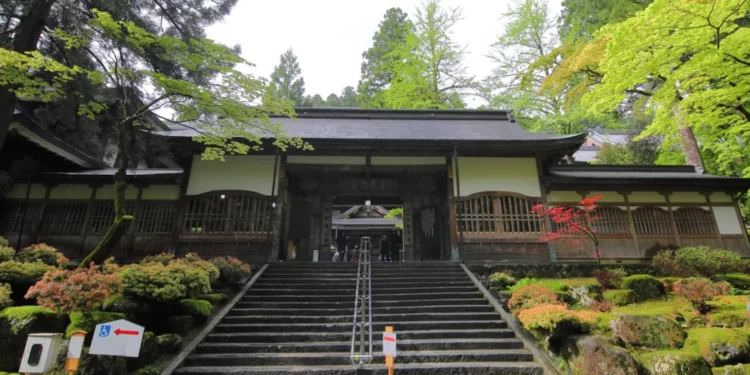Owning a church, temple, or shrine in Japan is considered a religious corporation that can get significant tax benefits.
Benmou Suzuki’s tumbledown 420-year temple, situated deep in the forest near a small Japanese mountain village, barely appears like a prized real estate. However, two guys who claimed to be real estate agents approached the monk and asked if he was interested in selling it.
He suspects they were more interested in the special tax status of running a religious property, which sparked their attention more than the ornate building at the trailhead of the sacred mountain.
Many people would desire a temple, even a temple mountain. Considering the importance of the status of the religious corporation, the temple would fetch a sizable amount of money.
As the population in Japan declines and interest in religion wanes, only a few people can help maintain temples and shrines. For example, Suzuki’s Mikaboyama temple, located in Sanbagawa, is a town that has only 500 people and has only three other Buddhist temples, a church, and a Shinto shrine.
Japanese authorities fear the growing number of religious properties coming up for sale, which the buyers are not motivated to purchase for heavenly reasons. Instead, they worry that many are trying to avoid paying taxes or laundering money.
Repurposing temple or shrine properties initiated public resentment. This year, news reports focused on a case involving the demolition of a temple in Kyoto that later turned into a parking lot.
Owning a church, temple, or shrine in Japan is considered a religious corporation that can get significant tax benefits. Companies working under such corporations that provide religious services like funerals are exempt from paying taxes, while other non-religious companies also benefit from lower tax rates.
As of the end of 2023, Japan has about 180,000 religious sites that were corporation status, based on data from an agency. The number of inactive corporations with no religious activities for over a year has increased to more than 4400.
If the monk or priest passes away without an heir, the overseeing religious group often finds a replacement or gives up the site’s corporate status voluntarily.
However, about 7000 religious sites function independently of these groups and are easy to buy.
The cultural affairs agency said that it increased efforts to remove the company status of inactive religious sites to prevent being targeted by dubious bidders.
When a significant earthquake strikes, which often destroys temples and shrines, agency representatives will visit these religious groups to warn them of falling victim to such buyers.
Last year, six corporations had to dissolve, while 17 religious corporations chose to dissolve voluntarily. The agency states that the number will increase this year and the following year when it intensifies its investigation.
It may seem easy for Japan to amend its legal laws to tighten the criteria for acquiring religious sites. However, the agency states that the government is hesitant to change the rules due to the religious freedom protected by the constitution in Japan.
When investigating six websites specializing in brokering the sale of religious properties, it found that hundreds were for sale. Most are vaguely stated online, with brokers mentioning that sellers wanted to keep the sales as private as possible.
Broker Takao Yamamoto, located in Osaka, informed that a religious corporation alone could bring in 30 million yen ($210,000). There are religious sites with profitable cemeteries advertised for millions of dollars. It is easier to purchase if someone has the money. And even foreigners can buy it. Many Chinese people are trying to buy them.
As for Suzuki, he is not planning to sell the Mikaboyama temple but will instead come up with ideas to generate money to maintain it since temples are a place to build relationships.

















